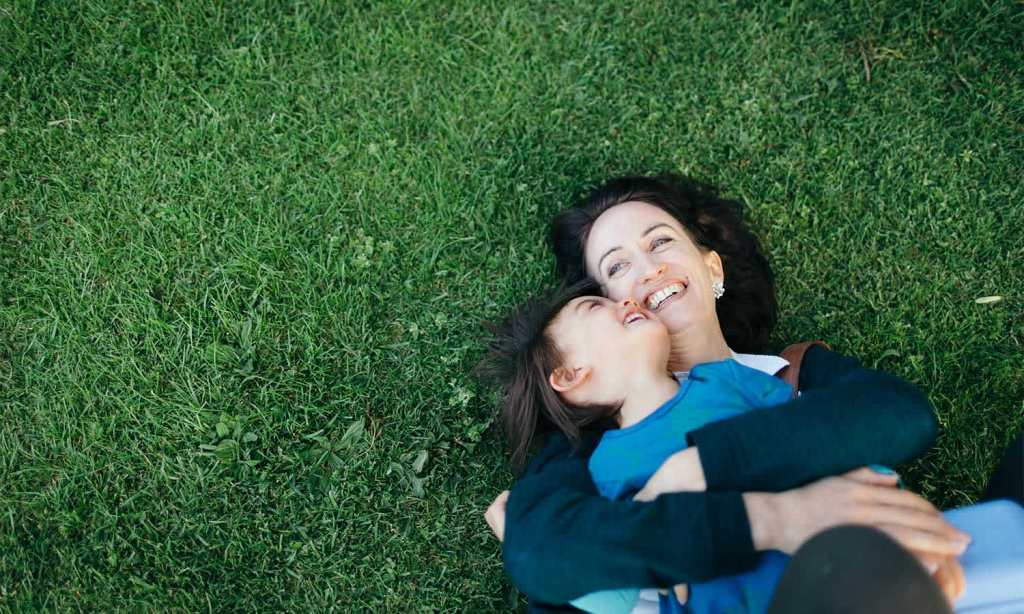The last few weeks have seen us witness — or be personally affected by — floods in the Norther Rivers, war in Ukraine, and the sudden, unexpected deaths of Bob Saget, Shane Warne and others. It’s been a lot. And when we ourselves can’t even wrap our heads around it all, how can we be expected to explain it to our kids?
According to Nancy Sokarno, a psychologist at the online psychology platform Lysn, it’s completely normal to feel unnerved by the thought of sharing what’s going on in the world with your kids.
“Most of the time, parents don’t want to expose their innocent child to bad news for fear of shattering their ‘perfect’ world view,” she says. “It can also come down to the fact that some children are particularly sensitive and therefore, as a parent, you’re less inclined to want to expose them to that kind of information.”
Sokarno says the most important thing to keep in mind when sharing any negative news with your kids is that you should be protecting them from graphic or unnecessary details that their brains may not be able to properly process.
“All children have different temperaments and therefore can react differently to bad news,” she explains. “As a general rule, it’s best to just share the facts or most basic information, leaving out details that aren’t imperative for them to hear. Also, try to control when and what they see by watching or consuming the news with them. Try not to let your children experience the news without you so at the very least you can control the amount of information and be there for when they might react.”
Ahead, Sokarno shares five other things to keep in mind when talking to your kids about what’s going on in the world.
Be Honest
“It’s important to be honest because it’s likely children will be exposed to the news in some way or another. In this digital age, we’re exposed to 24/7 news cycles, social media, advertising and the list goes on – at any moment your child could be exposed to negative news.
“By being honest, you can show them that it’s ok to talk about scary topics and give them the confidence to reach out about them. All children need to feel safe and the best way to reassure them is by communicating in an open way. Ultimately, it’s almost impossible to shield your child/children from what is happening in the world, but by talking to them about it, you can try to control some of the narrative.”
Be Prepared to Answer Their Questions
“Knowing they can come to you for answers might stop them from searching elsewhere or making up answers on their own! Children are curious and if they are looking for answers they will seek them out, which can often mean stumbling across worse or more detailed information.
“Tragic news or traumatic events can be confusing for a child and the last thing you want them doing is using their imagination to determine what is going on, which can often be worse than the reality.
“By letting your child come to you with questions, you can control some of the narrative, make them feel safe asking questions, and tailor your response based on what they can handle for their age.”
Model Good Self-Care
“Demonstrating good self-care practices to your child is incredibly important because it can be the thing that allows children to become aware of their physical and emotional needs. Self-care promotes positive wellbeing of the body and mind, allowing your child to effectively prepare to handle future stressors, whilst promoting confidence and self-esteem.
“Modelling good self-care can often be a case of ‘monkey see, monkey do’ whereby your child will learn their approach to self-care based on your practices. Rather than telling your child about self-care, show them. Children tend to learn more from what you do rather than what you say.”
Provide Reassurance
“Children have typically very innocent minds and it can be a big scary world out there if you don’t reassure them that they are safe. Not reassuring them or dismissing their concerns can lead them to catastrophise or think about worse-case scenarios. Please don’t allow their little imaginations to run wild.”
Go Easy on Yourself
“It’s always assumed that a parent should know what to do and say in all situations, but this just isn’t realistic — or the truth. Please know that there are plenty of online resources that can help when it comes to communicating with a child, or experts who can help you through any scenario.”
Read more stories from The Latch and subscribe to our email newsletter.


